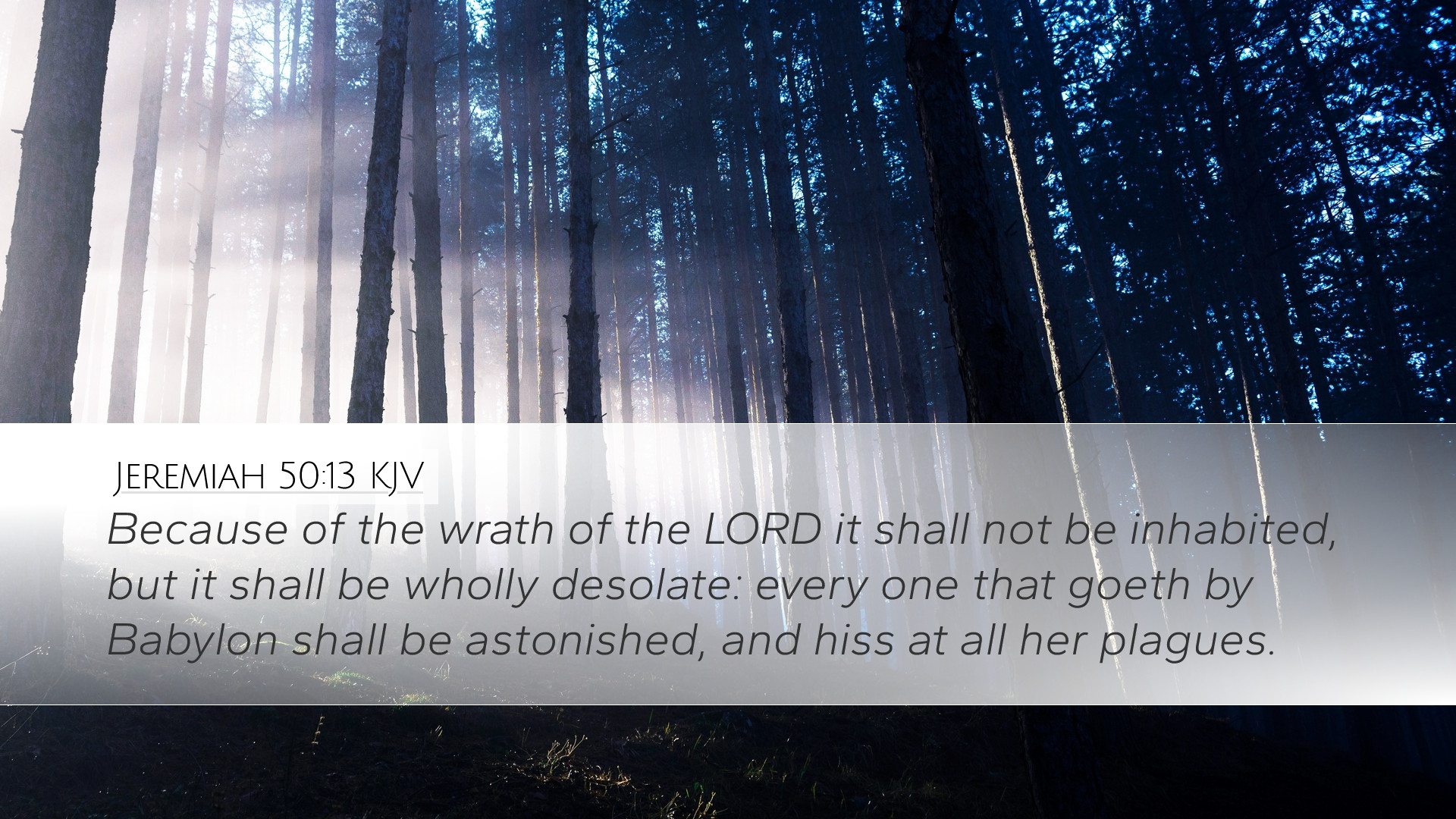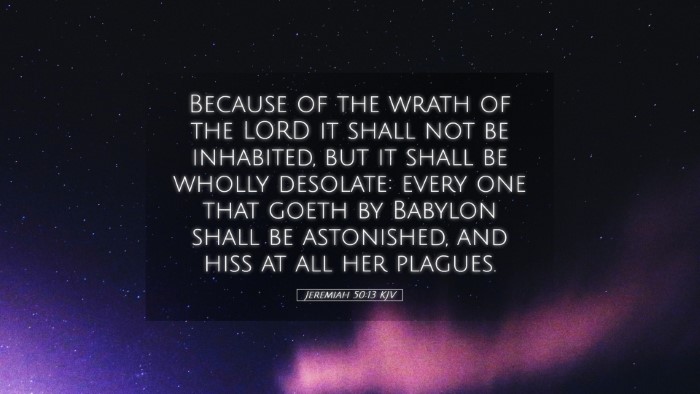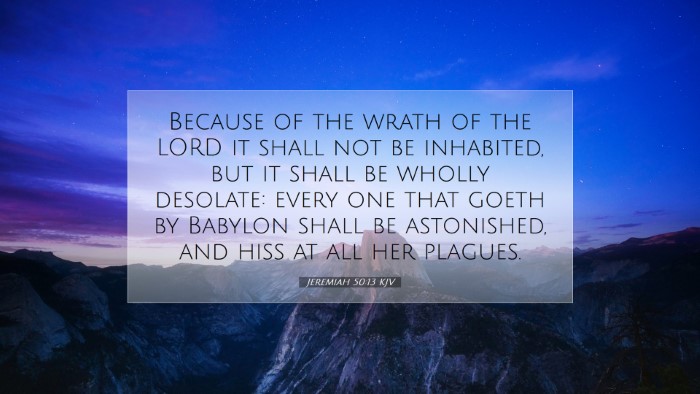Commentary on Jeremiah 50:13
Verse Text: "Because of the wrath of the Lord it shall not be inhabited, but it shall be wholly desolate: every one that goeth by Babylon shall be astonished, and hiss at all her plagues."
Introduction
Jeremiah 50:13 stands as a pronounced declaration of judgment against Babylon, symbolizing the broader themes of divine justice, desolation, and the repercussions of sin. In this commentary, we will synthesize insights from renowned public domain commentaries such as Matthew Henry, Albert Barnes, and Adam Clarke to explore the theological implications of this verse. This reflection aims to provide meaningful perspectives for pastors, students, theologians, and scholars alike.
Contextual Background
To fully appreciate the weight of Jeremiah 50:13, it is crucial to consider the historical and prophetic backdrop against which it was written. Jeremiah, a prophet in the late 7th and early 6th centuries BC, prophesied during a tumultuous time for Israel and Judah, foreseeing the destruction and exile that would come as a result of their disobedience to God. Babylon, the dominant empire of the time, became the instrument of God’s judgment against His people.
Destruction of Babylon
In Jeremiah 50, the prophet conveys a message of hope and assurance that despite Babylon's current dominance, God would ultimately judge and destroy her. This chapter serves both as a warning to Israel and a declaration of God's sovereignty over nations.
- Divine Wrath: The "wrath of the Lord" indicates God’s active role in executing judgment. As noted by Matthew Henry, this underscores that Babylon's fall is a result of divine displeasure for her opposition to the people of God and their covenantal relationship.
- Desolation: Henry elaborates on the term "wholly desolate," emphasizing that this signifies not merely a temporary devastation but a complete and utter abandonment of the city, rendering it unlivable as a declaration of God's justice.
Theological Implications
This verse brings forth several theological themes that merit examination:
- The Nature of God's Judgment: Albert Barnes stresses that the destruction of Babylon serves as a cautionary tale about the inevitability and severity of divine judgment against sin. It serves as a reminder that nations or individuals that stand against God's purpose will face consequences.
- The Astonishment of Nations: The reaction of those who "goeth by Babylon" reflects a universal recognition of God’s power. As Adam Clarke notes, the astonishment and hissing of the passerby signify both condemnation and awe — they realize the futility of opposing God.
Practical Applications
Jeremiah 50:13 not only speaks to the ancient context but also holds relevance for contemporary readers:
- Faithfulness to God: Believers are called to remain faithful amidst a culture that may resemble Babylon's defiance. The prophecy reminds Christians to trust in God's ultimate justice and righteousness.
- Awareness of Judgment: The desolation of Babylon serves as a sobering reminder of the consequences of sin, both personally and collectively. The Church must continually seek alignment with God’s will.
- Hope in Restoration: While judgment is inevitable, the overarching narrative of Jeremiah holds a promise of restoration, emphasizing that God’s judgment is often coupled with His redemptive plans.
Conclusion
In Jeremiah 50:13, we see a profound statement regarding God's judgment against Babylon and, by extension, against all nations and individuals who defy His will. Through the insights of Matthew Henry, Albert Barnes, and Adam Clarke, we have explored the implications of divine wrath, desolation, and the reaction of onlookers. This passage calls for reflection on God’s sovereignty, justice, and the ultimate fate of human pride. May it inspire believers to uphold faithfulness, remain vigilant against sin, and trust in God’s perfect justice as part of His redemptive narrative.


